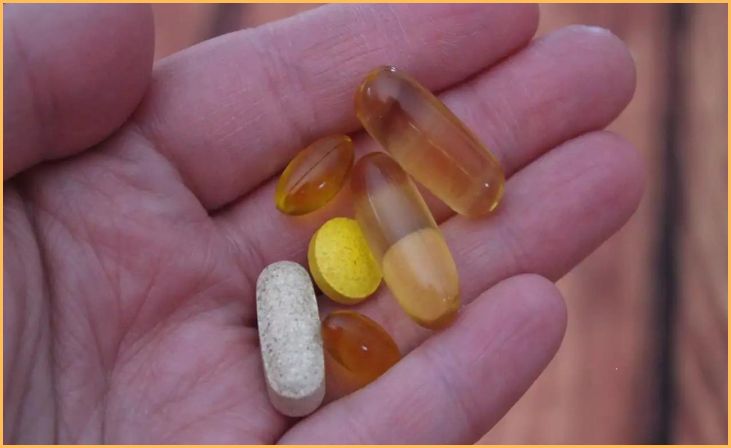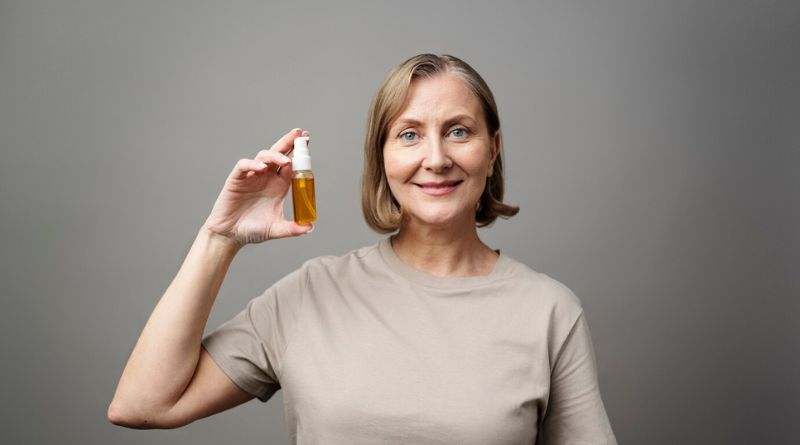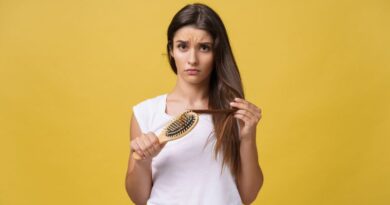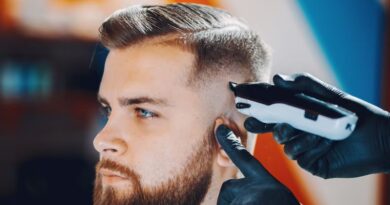Welcome to your comprehensive guide on utilizing hair growth vitamins to achieve lush, vibrant locks! Vitamins play a pivotal role in nourishing and fortifying your hair from within, contributing to its strength, length, and overall health. This blog unravels the secrets behind harnessing the power of essential vitamins to promote hair growth naturally.
Explore the world of vitamins like Biotin, Vitamin E, Vitamin D, and others, each playing a unique role in enhancing hair health. Understand how these vital nutrients influence hair growth cycles and strengthen follicles, paving the way for longer, thicker hair. Dive into expert tips on incorporating these vitamins into your daily routine, whether through diet, supplements, or topical applications.
Say goodbye to hair woes and embrace the transformative potential of these hair growth vitamins. Discover how a well-balanced intake of these nutrients can address deficiencies, stimulate hair growth, and contribute to a more vibrant mane. Get ready to unlock the secrets of healthy, thriving hair with the power of targeted vitamins.
Hair Growth Vitamins
Vitamin A

Vitamin A is a vital nutrient crucial for various bodily functions, including supporting healthy vision, immune system function, and cell growth. As a powerful antioxidant, it helps combat free radicals, protecting cells from damage. In terms of hair health, Vitamin A plays a role in producing sebum, an oily substance that moisturizes the scalp and keeps hair follicles healthy.
However, excessive Vitamin A intake can lead to adverse effects, including hair loss. It’s important to maintain a balanced intake through a varied diet, including foods like carrots, sweet potatoes, spinach, and dairy products. Alternatively, supplements should be taken under medical supervision to ensure a healthy balance. Vitamin A’s multifaceted role underscores its importance not only for hair health but for overall well-being and optimal bodily functions.
Biotin (Vitamin B7)
Biotin, also known as Vitamin B7, is a water-soluble vitamin that plays a significant role in maintaining healthy hair, skin, and nails. It aids in the metabolism of fats, carbohydrates, and amino acids, supporting the production of keratin—a key protein that forms the structure of hair.
Biotin deficiencies may lead to brittle nails, hair breakage, or hair loss, although such deficiencies are rare. Incorporating biotin-rich foods like eggs, nuts, seeds, and leafy greens into your diet can contribute to healthy biotin levels. Supplements are also available, but it’s essential to consult a healthcare professional before starting any supplementation to ensure proper dosage and avoid potential side effects. Biotin’s role in supporting hair health highlights its significance in maintaining strong, vibrant hair and overall well-being.
Also Read: 8 Best Foods for Healthy Hair & Scalp
Vitamin C
Vitamin C, an essential nutrient and powerful antioxidant, plays a pivotal role in maintaining overall health, including supporting hair health. It aids in the production of collagen, a protein crucial for hair structure, strength, and growth. Additionally, Vitamin C supports the absorption of iron, a mineral vital for healthy hair growth.
As an antioxidant, Vitamin C helps combat oxidative stress caused by free radicals, which can damage hair follicles and lead to hair thinning or loss. Including Vitamin C-rich foods like citrus fruits, strawberries, bell peppers, and broccoli in your diet promotes healthy hair growth and scalp health. Whether through a balanced diet or supplements, ensuring adequate Vitamin C intake supports not only hair health but also boosts the body’s immunity and overall well-being.
Vitamin D

Vitamin D, often dubbed the “sunshine vitamin,” is essential for various bodily functions, including promoting healthy bones, immune system support, and aiding calcium absorption. In terms of hair health, Vitamin D receptors are present in hair follicles, suggesting its potential role in hair growth and follicle cycling.
Studies suggest a correlation between Vitamin D deficiency and certain hair conditions, such as alopecia or hair loss. While research on its direct impact on hair health is ongoing, maintaining adequate Vitamin D levels through sun exposure and diet—such as fortified foods, fatty fish, or supplements—may support overall scalp health and potentially contribute to healthy hair growth. Balancing sun exposure with proper protection and ensuring sufficient Vitamin D intake can potentially play a part in maintaining optimal hair health alongside its broader benefits for the body.
Vitamin E
Vitamin E, a potent antioxidant, is essential for various bodily functions and is known for its role in skin health. In terms of hair care, Vitamin E promotes circulation to the scalp, supporting a healthy environment for hair follicles. It helps in reducing oxidative stress, which can contribute to hair damage and premature aging.
This vitamin assists in maintaining the integrity of cell membranes in hair follicles, potentially aiding in hair growth and strength. Vitamin E-rich foods like nuts, seeds, spinach, and avocados, or supplements, contribute to maintaining healthy levels. Topical application of Vitamin E oil or products containing this vitamin can nourish the scalp and hair, providing moisture and potentially supporting overall hair health. Incorporating Vitamin E into your diet and hair care routine may contribute to healthier, more resilient hair.
Niacin (Vitamin B3)
Niacin, also known as Vitamin B3, is a water-soluble vitamin essential for overall health, including proper function of the nervous system, digestive system, and skin health. In relation to hair care, niacin plays a role in promoting circulation, ensuring nutrients reach the hair follicles.
It aids in the metabolism of carbohydrates, fats, and proteins, which are essential for healthy hair growth and maintenance. Niacin’s ability to enhance blood flow to the scalp encourages a healthy environment for hair follicles, potentially supporting stronger, more vibrant hair. Foods like poultry, fish, peanuts, mushrooms, and green peas are rich in niacin. A balanced diet ensures adequate levels of niacin, contributing not only to healthy hair but also to overall well-being and proper bodily functions.
Vitamin B12
Vitamin B12, a water-soluble vitamin, plays a crucial role in various bodily functions, including the production of red blood cells, nerve function, and DNA synthesis. While its direct impact on hair health isn’t fully elucidated, B12 deficiency might lead to hair thinning or hair loss.
B12 aids in carrying oxygen to the scalp, promoting a healthy environment for hair follicles. Deficiency can disrupt this process, potentially affecting hair growth and leading to weakened strands. Maintaining adequate B12 levels through a balanced diet containing animal products like meat, fish, eggs, and dairy, or supplements when necessary, supports overall health, including potential benefits for hair health. Consulting a healthcare professional for diagnosis and guidance in case of suspected deficiencies ensures appropriate management and potentially contributes to maintaining healthy hair.
Also Read: Benefits Of Kale For Skin
Iron

Iron is an essential mineral crucial for various bodily functions, including the production of hemoglobin—a protein in red blood cells responsible for transporting oxygen throughout the body. Adequate iron levels are vital for healthy cell growth and optimal oxygen supply, including to the scalp and hair follicles.
Iron deficiency, known as anemia, can result in decreased oxygen delivery to hair follicles, potentially leading to hair thinning or loss. Ensuring sufficient iron intake through a balanced diet containing sources like lean meats, fish, beans, nuts, and leafy greens supports healthy hair growth. Supplements may be necessary in cases of diagnosed deficiency. Consulting a healthcare professional for proper diagnosis and guidance in managing iron levels can contribute to overall health, including maintaining a conducive environment for strong, vibrant hair.
Conclusion
Embracing the power of hair growth vitamins is a significant step toward achieving your hair goals. With the right combination of essential nutrients, you can nourish your hair from the inside out, promoting stronger, healthier growth. Remember, while vitamins are crucial, they’re part of a broader approach to hair care. Integrating these vitamins into your routine, whether through diet or supplements, can significantly impact hair health. Combine this with a healthy lifestyle and proper hair care practices for optimal results.
Let this guide be your go-to resource for understanding the role of vitamins in hair growth and leveraging their potential to transform your locks. Unlock the secret to enviable hair by harnessing the natural power of these essential nutrients, paving the way for a healthier, more radiant mane.
FAQs
Vitamins like Biotin, Vitamin E, and Vitamin D are crucial for hair growth. Biotin aids in keratin production, while Vitamin E and D support scalp health and hair follicle growth, contributing to stronger, healthier hair strands.
While vitamins are essential, a balanced diet, proper hair care, and lifestyle factors also influence hair health. Vitamins work best as part of a holistic approach, complementing other essential aspects of hair care for optimal results and growth.
Excessive intake of certain vitamins can lead to side effects. For instance, high doses of Biotin might result in skin issues, emphasizing the importance of moderation and consulting a healthcare professional before significantly increasing intake levels.







